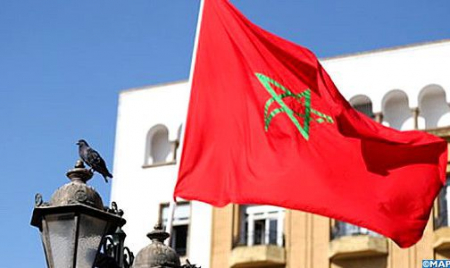Morocco Considers Managing Migratory Flows as Geopolitical Priority – Expert
Morocco considers the management of migratory flows to be a geopolitical priority, essential both for its own security and for the stability of the northern Mediterranean region, said Cherkaoui Roudani, an academic and expert in geostrategy and security. This conviction stems from the ambition of His Majesty King Mohammed VI to contribute to promoting a Mediterranean region that is transforming itself into a coherent, sustainable and stable geopolitical area, Roudani told MAP news agency, on the occasion of the first anniversary of the attempted assault carried out on June 24, 2022, by a group of illegal sub-Saharan migrants against the occupied enclave of Melilia. He highlighted the positive reception given by the international community to His Majesty the King’s humanitarian initiatives in favor of refugees of various nationalities present on the Libyan-Tunisian borders, recalling the launch by Morocco of several regularization operations, testifying to a spirit of solidarity and humanism. These measures aim to enable men and women from other parts of the African continent, who have long suffered clandestinely, to live in dignity, he said, welcoming the school enrolment rate of refugee children in Morocco, which stands at 90%, exceeding the world average. In a Mediterranean region beset by conflicts and geopolitical tensions, it is essential to underline the importance and stabilizing role played by Morocco in the geopolitical dynamics of immigration from the northern shores of the Mediterranean, noted the academic. In his view, the Kingdom’s geography plays a key role in the geopolitics of immigration around the Mediterranean, which is why Morocco is fully committed to close cooperation with the European Union on migration and security issues. In this vein, Roudani pointed out that agreements have been signed to strengthen the management of migratory flows, combat migrant smuggling and promote regular and secure migration, adding that this cooperation aims to guarantee the security of all and prevent irregular migratory movements. To achieve this, Morocco is deploying major human, material and financial efforts to control irregular migratory flows on its territory, and is conducting operations to combat migrant smuggling and human trafficking networks, regularly dismantling criminal networks, said the academic. The country has also significantly strengthened its border presence and put in place security measures to prevent attempts at irregular passage to Europe, he pointed out, adding that Moroccan authorities have stepped up their efforts to prevent assaults on the two towns of Sebta and Melilla and reinforced border security in an area of migratory tension. For Roudani, it is important to emphasize that Morocco does not limit itself to its cooperation with the EU and Spain. Rabat is also committed to regional and international partnerships to tackle the challenges of immigration, citing the Kingdom’s active collaboration with organizations such as the International Organization for Migration (IOM), and its participation in regional initiatives such as the Rabat Process, commonly known as the Euro-African Process on Migration and Development. By bringing together European and African countries, as well as institutions such as the European Commission and ECOWAS, Morocco has helped strengthen the dialogue and cooperation needed to tackle this crucial issue, he explained. The academic also denounced Algiers’ destabilization strategy targeting bilateral relations between Morocco and the EU on the one hand, and with Spain on the other, which aims to disrupt this strategic partnership in the field of migration. To achieve its objective, Algiers is resorting to techniques of manipulating illegal immigrants, by disseminating false information and spreading rumors, he added, noting that these unfair methods have been put in place with the aim of weakening Morocco’s image and influencing its bilateral relations, notably with Spain and the EU.

